
Spring has finally arrived to Ireland, and as part of so has the sunshine and the chance to visit some further sites. My friend S. arrived this week she will spend the next month touring around Ireland. After picking her up at the airport and giving her a day to get over the ‘jet lag’ we struck out in the 19C day and decided to see some sites. Among them were several I had been to previously – New Grange; KNowth; Old Mellifont Abbey; Hill of Slane; ; and Trim Castle & Area. One thing that I did do differently was on the way, we stopped in at Duleek Abbey Ruins.
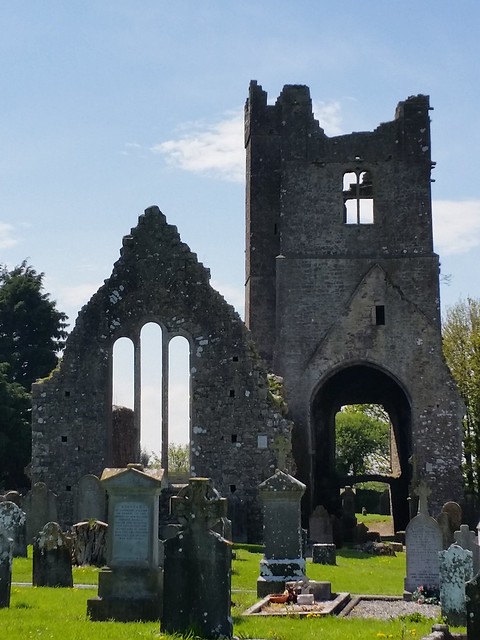
Duleek or Damhliag in Irish, translates to stone house or church- is a small town in County Meath, Ireland. The town began as an early Christian monastic settlement. St. Patrick established a bishopric here about 450 A.D. St. Cianan in 489 A.D., where a Pre-Norman Church was built on the site of St Mary’s Abbey. Today the ruins of the second incarnation (St. Cianan’s Church) Abbey are visible in Duleek today.
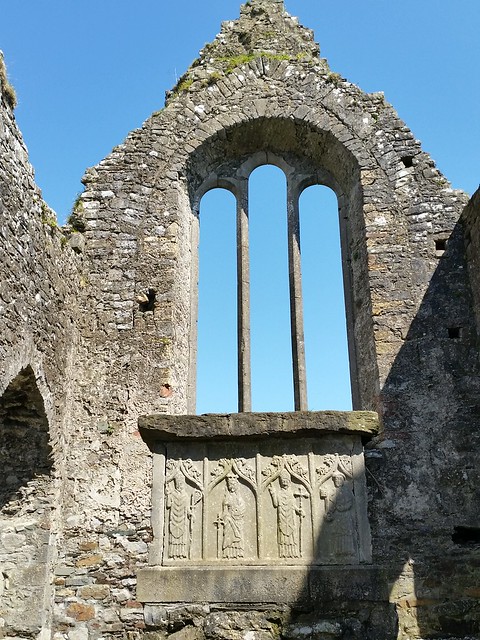

This monastic settlement was raided by Vikings in 830 and again in 1149. The body of Brian Boru lay in state here in 1014 on it’s way to Armagh after the Battle of Clontarf. In 1180 Hugh de Lacy, the Anglo-Norman Lord granted the church and lands to the Augustinians. What remains of the Abbey today is the 13th century southern arcade with a 14th century southern aisle (below). In the east gable of the aisle is a 16th century window (above). The plaque says “this window was made by Sirr Johne BelleWe Knight and Dame ?”
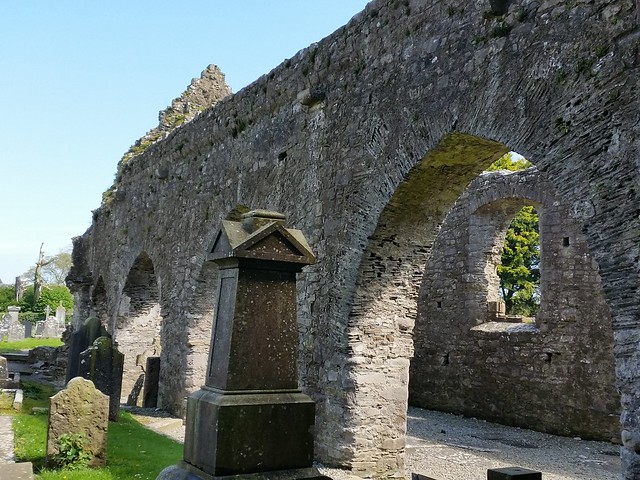
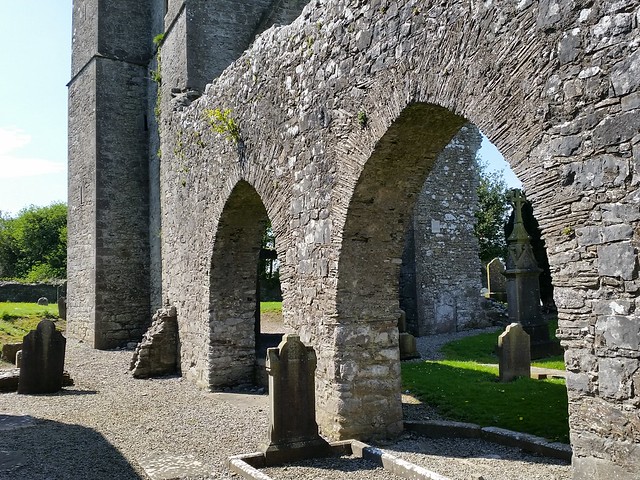
To the west is a 15th century bell-tower which was formerly joined to an earlier round tower. The round tower is no longer standing but the scar where it was joined onto the square tower is clearly visible on the side (below behind the tree). There are some faces carved into the bell tower as well. (close up below)
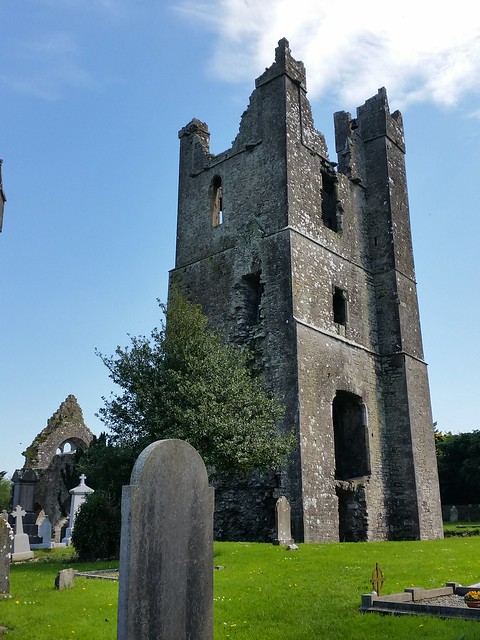
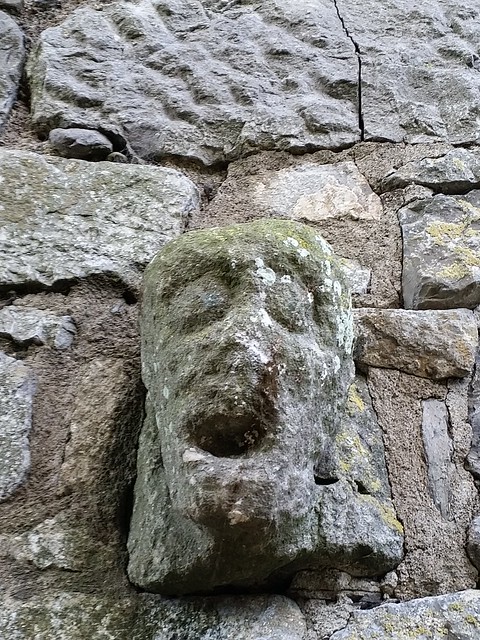
In the center of the former church, there’s a carved slab tomb which has carvings from the 1600’s which you can see below in the 4 photos.

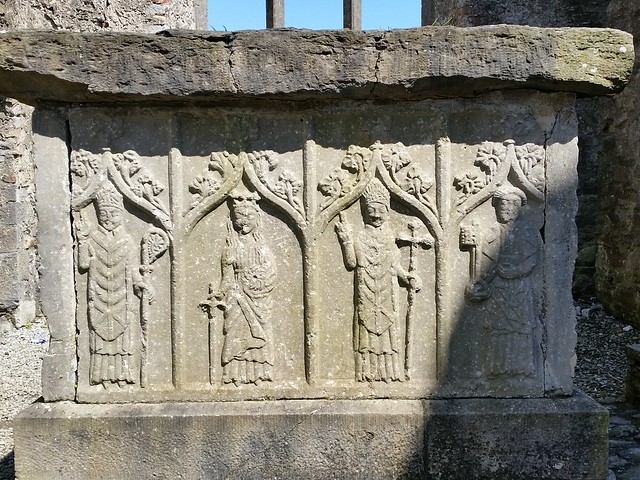
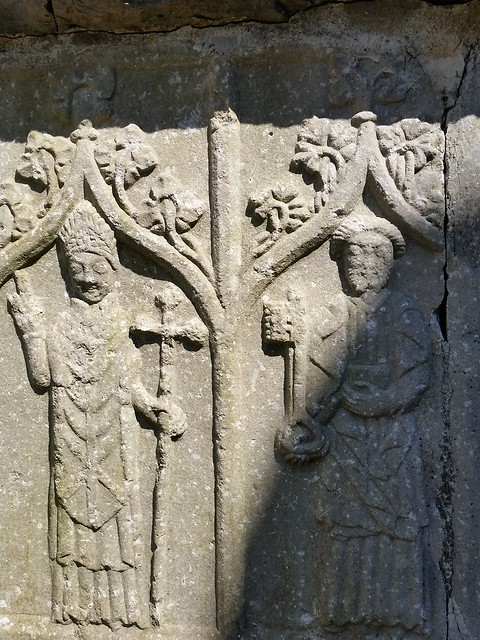
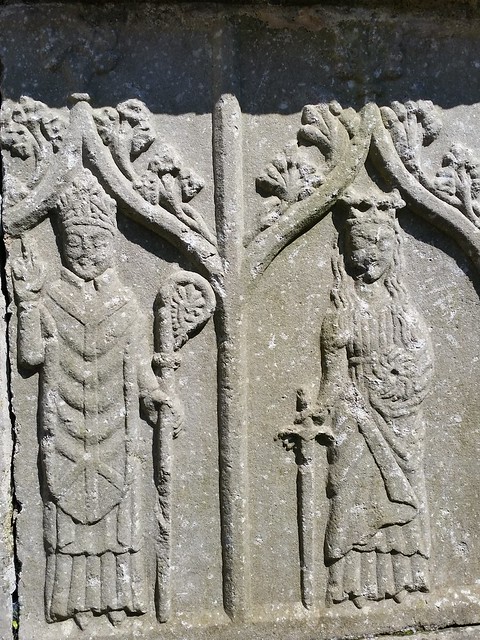
There are two Celtic high crosses in the churchyard that date from the 10th Century. Within the church are some early cross-slabs, a Romanesque pilaster-capital, and the base and head of the South Cross (first picture below).
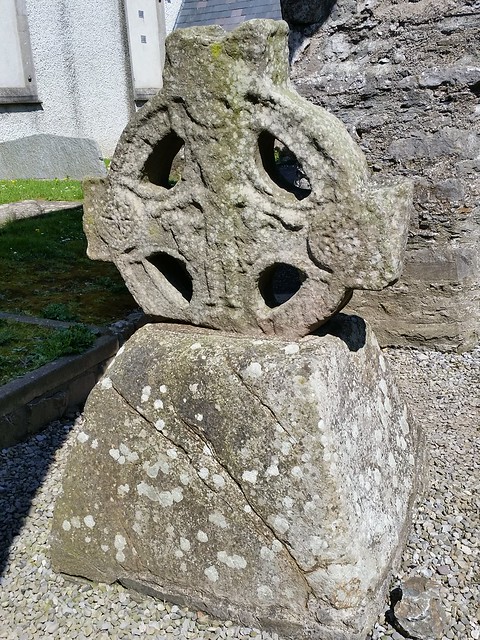
To the north of the abbey is a small but complete High Cross. This Cross is only about the height of a person, and is quite weathered and difficult to see what the carvings are. Front:

Close up of Gryphon?
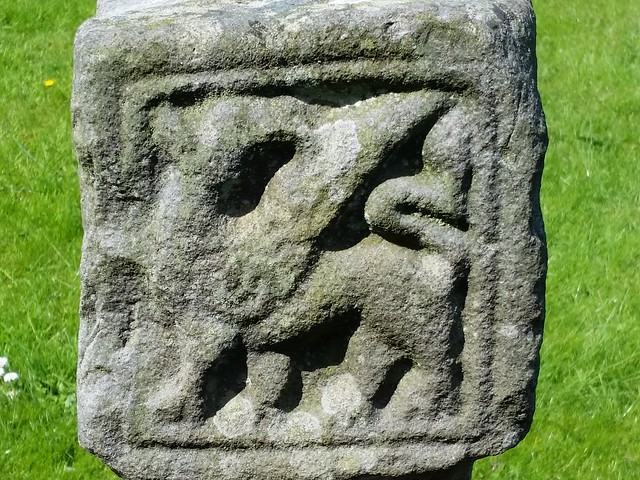
Reverse:
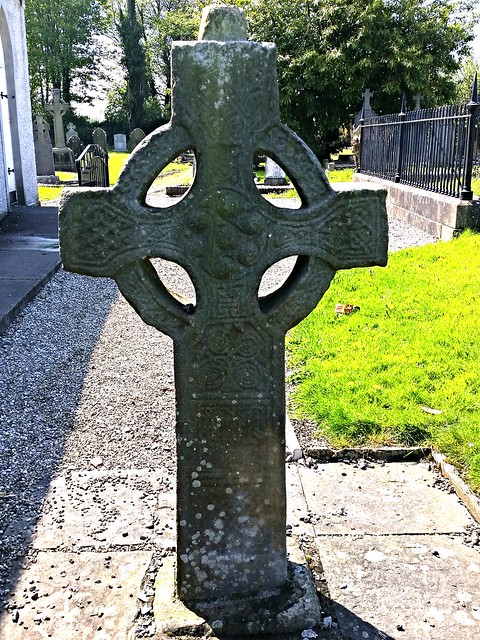
With S for size measurement:
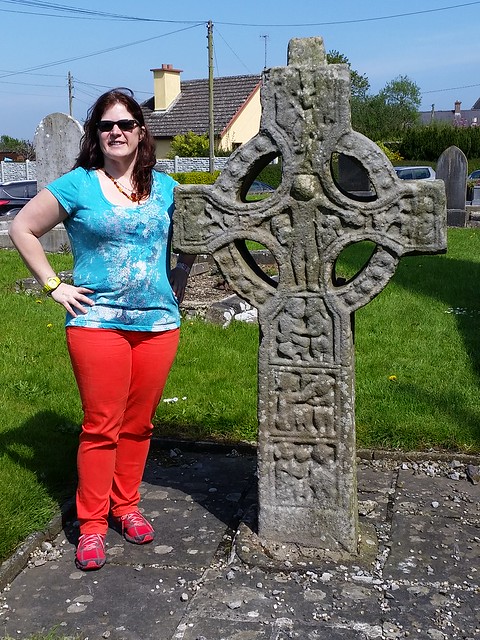
There is also an effigial tomb slab of James Cusack, Bishop of Meath 1679-1688 (above), as you can see below.

There are several other gravestones in the area, and a “modern” church that has now been converted to a restaurant for the town on the property (first picture). As a side note, there’s also a quaint little thatched cottage in Duleek within walking distance to the Abbey ruins (we parked in front of it) that I had to get a photo of – because it’s just been re-thatched and looked so pretty in the sunlight.
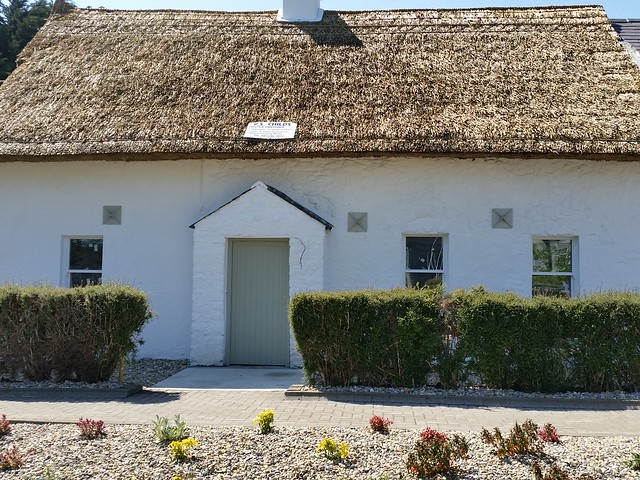

One thought on “Duleek Abbey, Co. Meath”
Comments are closed.